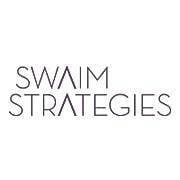The Continued Rise of Event-Based Volunteers: Trends and Strategies for the Future
Event-based volunteering has long been part of the volunteerism landscape. People are increasingly busy and, therefore, interested in volunteering on...
3 min read
 Swaim Strategies
Jun 26, 2024 9:30:00 AM
Swaim Strategies
Jun 26, 2024 9:30:00 AM

Chances are, your nonprofit already recruits volunteers to help run your events, but have you ever thought about how you’re allocating their time?
While many different types of volunteer work can be useful, formally-trained volunteers tend to be more skilled and invested in your mission, offering more valuable aid in areas you might need. This is especially beneficial for fundraising events, as you need highly skilled and dedicated people to represent your nonprofit while interfacing with attendees and soliciting gifts.
In this guide, we’ll discuss strategies for setting your event volunteers up for success, such as standardizing recruitment, investing in training, and using technology. As we review these tactics, consider your upcoming events and how you can integrate these tips into your volunteer management toolkit.
The first step in making any lasting change in your volunteer program is to establish its guidelines and standards. Every nonprofit is unique and has different needs, so ask yourself these questions to ensure your bases are covered:
Once you have these baseline questions, adapt them or add new ones to cater to different event needs if necessary. For instance, you have a different dress code and preparation schedule for a gala than you do for a major donor dinner. This expectation should be communicated to volunteers and noted in your event plan ahead of time.
Fully training your volunteers is crucial to ensure effective event management and execution. While extra training may require more resources, it’s well worth it—after all, how your volunteers perform may be the difference between a positive or negative event experience. Plus, your volunteers are passionate about your mission and your organization’s success, so they want to be as useful as possible.
Whether you need volunteers to greet donors at the door, set up the livestream for your hybrid event, or keep your auction items organized, you must train your volunteers on the unique skills for the role. Ensure you have ample time to prepare them so they can feel confident and unlock their full potential on the day of the event.
If your volunteers have questions or concerns about additional role-specific training, talk candidly about the importance of certain skills in pursuing your mission and encourage them to attend the relevant training sessions you offer. If you have promising volunteer prospects who want to participate but can’t attend your instructional sessions, provide alternatives such as pamphlets and virtual sessions to keep them engaged.
Avoiding internal confusion is the most important element of facilitating a smooth nonprofit event. Effectively communicating expectations with your volunteers before the big day is the best way to ensure your team is unified and prepared. Swaim Strategies’ guide to nonprofit event planning suggests briefing your event’s volunteers on details such as:
Establish these expectations by sending out two guides for them to follow—one for all volunteers and one for each role category. Be as detailed as possible and include a frequently asked questions section so your volunteers are all on the same page.
Much like other aspects of nonprofit life, volunteer management technology can greatly simplify your practices for both your volunteers and your team. Look for volunteer management software that empowers you to:
When applied to your nonprofit fundraising event, volunteer management technology allows you to schedule and allocate volunteers logically. Ultimately, this will make it easier for your team to communicate efficiently, stay organized, and focus on delivering a great event experience.
Your volunteers are the backbone of your event, and they’ll work better together if they understand how much your nonprofit appreciates and supports them. Create an encouraging and helpful environment for your event’s volunteers by:
Another key element of supporting your volunteers is to listen to their feedback. Send out surveys frequently, both after events and every quarter, asking how you can improve the volunteer experience. This will show that you value your volunteers’ opinions and want to enhance your program to better address their needs.
As you strategize how to allocate your volunteers’ time most effectively, remember to use data to guide your planning and learn more from professionals through resources like fundraising books, blog posts, and podcasts. Track data points such as attendee satisfaction and volunteer retention rate with your event management software so you understand where you can improve your approach for events in the future.
Featured Posts

Event-based volunteering has long been part of the volunteerism landscape. People are increasingly busy and, therefore, interested in volunteering on...

The idea of micro-volunteering is gaining traction, and for good reason. Fewer people are willing or able to commit to a regular shift. They want the...